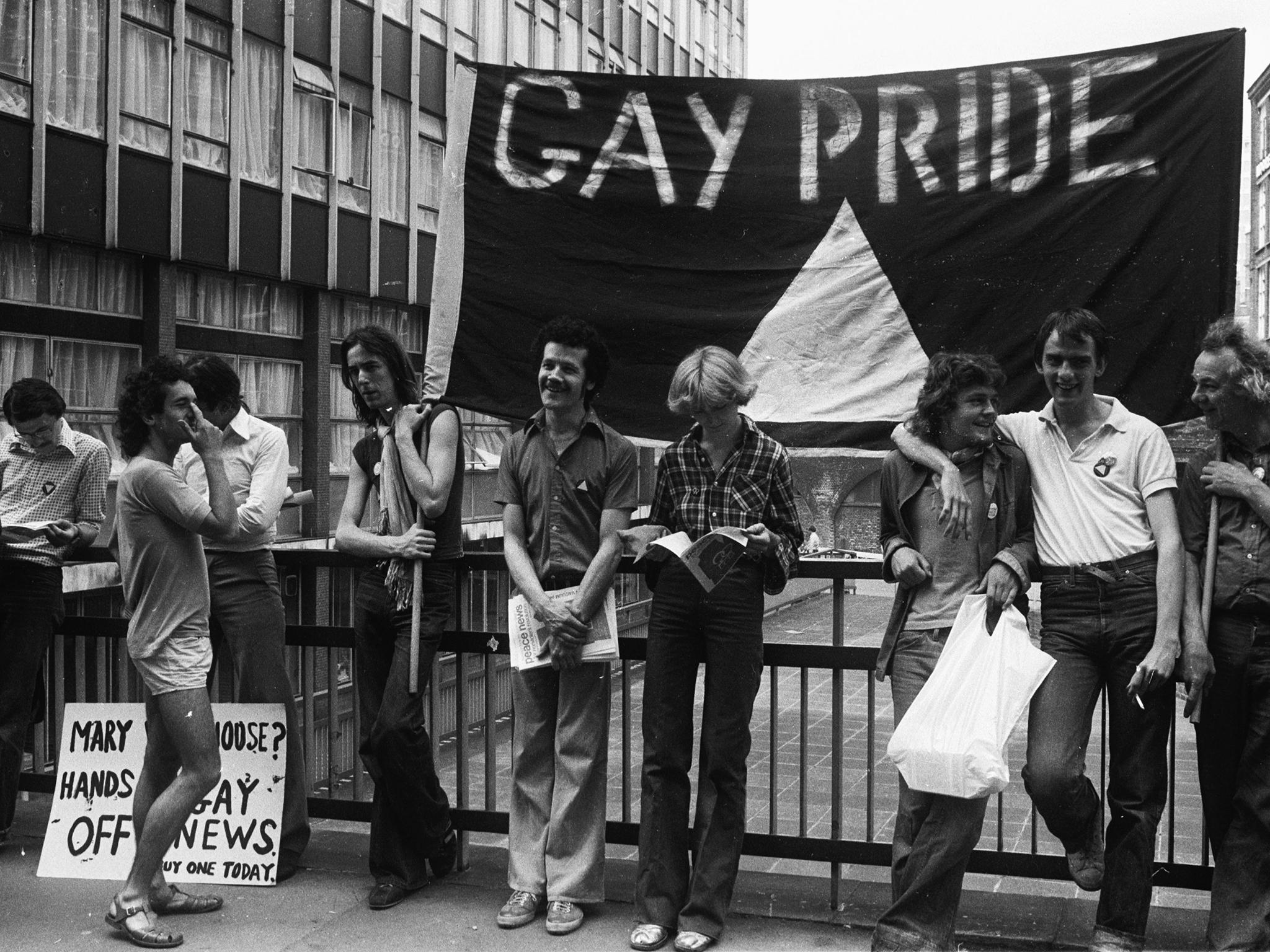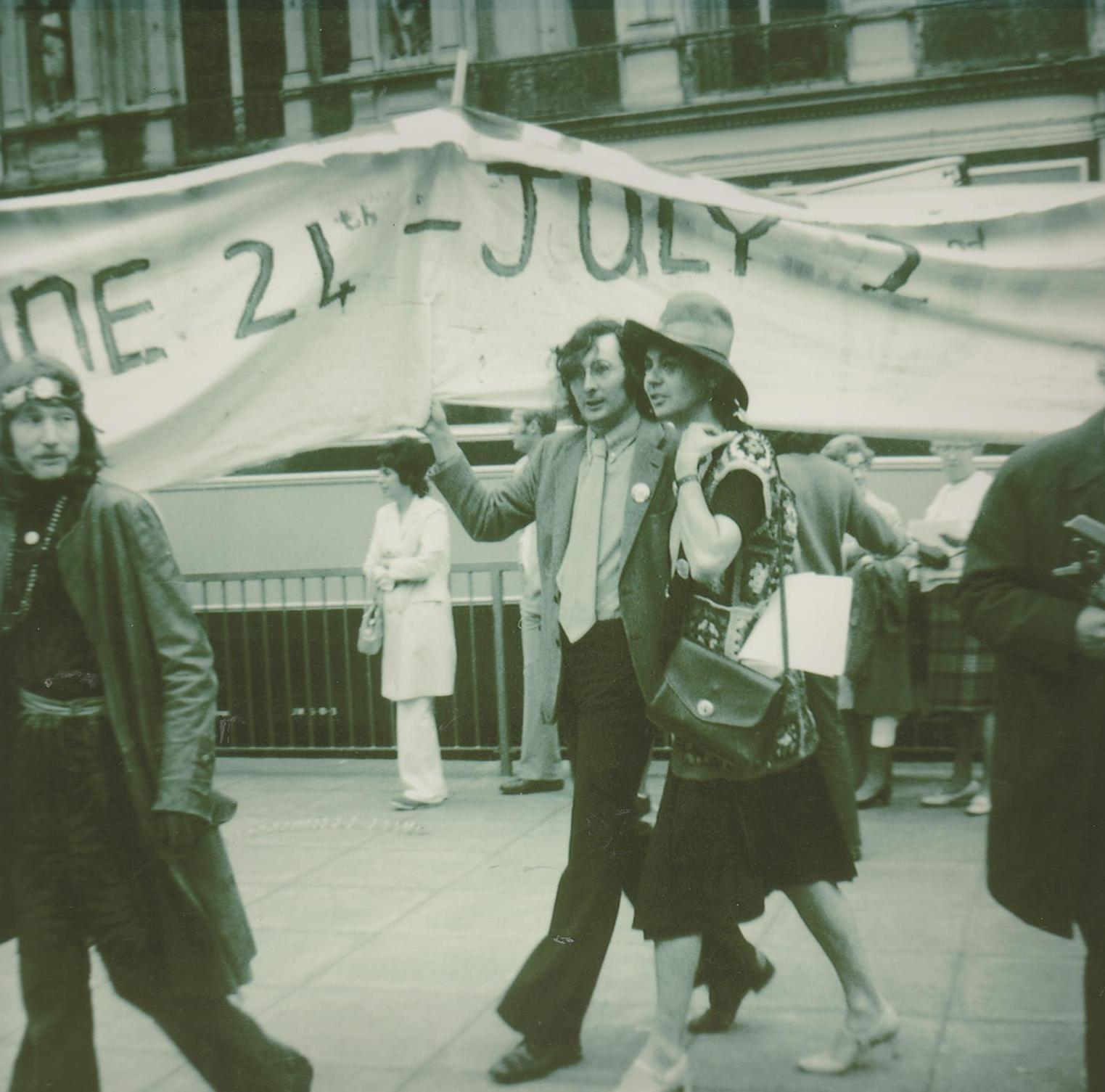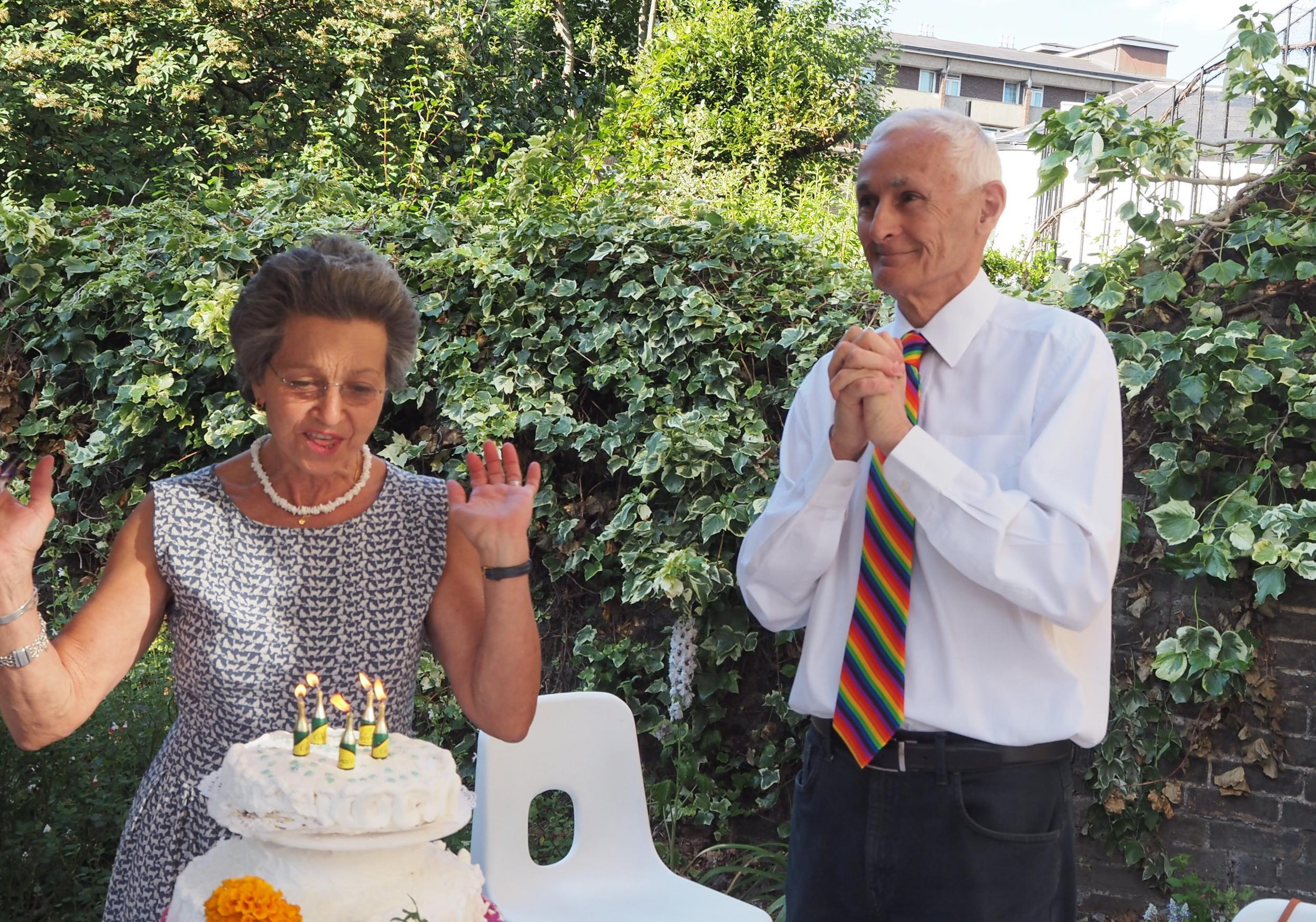A pioneering 1960s gay rights activist on the time he staged a sit-in with a bunch of drag queens
Fifty years after homosexuality was partially decriminalised in England and Wales, activist and writer Andrew Lumsden looks back on his experiences in the Sixties

Andrew Lumsden was in his twenties when he decided to explore the gay world of Sixties London, as he puts it. Decades later, he is regarded as one of the pioneering figures in the fight for LGBT rights in the UK who brought about the partial decriminalisation of homosexuality some fifty years ago.
In July 1967, changes to the Sexual Offences Act legalised homosexual acts between men over the age of 21 in private in England and Wales. At that time, Lumsden found it hard to label his feeling that he wasn’t attracted to women, as had been presented to him as the norm.
“I wasn’t aware of one other person who was what we now call gay when I was 26 years old. And I knew an enormous number of people in the late 1960s.” In fact, Lumsden recalls the word “gay” first being used to describe same-sex relationships. At the time, people complained that they could no longer comfortably describe a happy occasion as “gay”, he says.
“We chose it ourselves instead of being called 'queer'," a word which has since been reclaimed by the LGBT movement.
“I hated the gay world of that time,” says Lumsden, who after graduating with an English degree from Cambridge University worked at the Daily Telegraph and The Times as a reporter.
“We had been taught to hate ourselves. I had been accustomed to a heterosexual world in which everyone met openly and all their friends knew who they were seeing.
“Everyone was being bullied by the police, no one was out to other people in their work places, you couldn’t talk about who you met or liked. Nothing! The law was deeply hostile, and the police were worse.”
But Lumsden unwittingly took his first step towards making history when he read that the burgeoning Gay Liberation Front (GLF) civil rights group was organising a march, and immediately decided to join. “The GLF said don’t hate yourself, you can be proud be happy. We were all so confident and happy in what we were doing.”

A world away from the taps and swipes of Grindr and Her and gay clubs that were their precursor, Lumsden first dipped his toe into London’s gay scene by tentatively placing an advert in the International Times newspaper.
“They bravely accepted small same-sex contact adverts, and they got prosecuted for it in the end. I was living in Soho at the time, and I met several young men that way. Some of them didn’t understand the significance of the advert. They were just lonely in London and wanted to make friends. Others were young men who knew perfectly well what the advert meant.”
Lumsden quickly became a key player in the GLF, a movement that was started in New York following the Stonewall riots and adopted in London and San Francisco. While it is easy to look back on the time with rose-tinted spectacles, Lumsden stresses that the fight was tough and dangerous as the group were regarded by many as attacking the very fabric of society.
Of course, that involved being arrested on occasion. Learning that the gay-friendly Chepstow pub in London’s Notting Hill had banned drag queens from entering, the GLF and members of the Radical Queens group commune staged a sit-in.
“It was a famous gay pub,” says Lumsden. “It was a place that made money out of gay customers and had declared a policy that no one in drag would be served, probably at the request of local police.
“About 20 of us went in, many of us dressed in drag. The landlord told us to get out and we refused so he called the police. In the end the police carried us out.” The group were charged with disorderly conduct.
To happily add salt to the wound, members of the group attended their date at the Magistrate's court dressed in their finest gowns.
“The Radical Queens arrived in beautiful drag. The magistrate was quite put out. There was no pretence that they were women. They were in hats, and frocks. Indeed immensely hairy chests surrounded by frills and furbelows was one of the great sights of the movement. We wanted to show that we were free to dress as we liked. If we want to be camp, we will. It was breaking down the stereotypes of what a man must be like."
Lumsden took a different, yet equally subversive, approach.
“I was so bad at drag so I wore a suit to court. My way of upsetting people was to be flagrantly gay and looking exactly like an ordinary office worker.”

Decades later, actions that we take for granted still have a special resonance for Lumsden. Men pushing prams, for instance, is a shift in traditional gender roles that Lumsden still finds “delightful”. He also recalls the first time he saw a man with long hair. “It was on Oxford Street in the late Sixties, and people were staring at him. They didn’t know what to do.”
Now, he wants to undo the damage of anti-gay laws around the world - many of which were imported to British colonies - and wants those given pardons for being convicted of archaic homosexual crimes to be given an apology. "A pardon is for a criminal. Parliament needs to give these men an apology," he stress. Inclusive sex education is also vital to young people understanding their bodies and sexualities, he adds.
Same-sex marriage, he continues, is all right for some but is to him simply a "tax fiddle". "I didn’t want gay marriage because I felt marriage is an institution that does terrible damage to women, and is used to bully the other half of the globe."
Lumsden may be a septuagenarian, but he is no less defiant or devoted to the cause.
Join our commenting forum
Join thought-provoking conversations, follow other Independent readers and see their replies
Comments
Bookmark popover
Removed from bookmarks